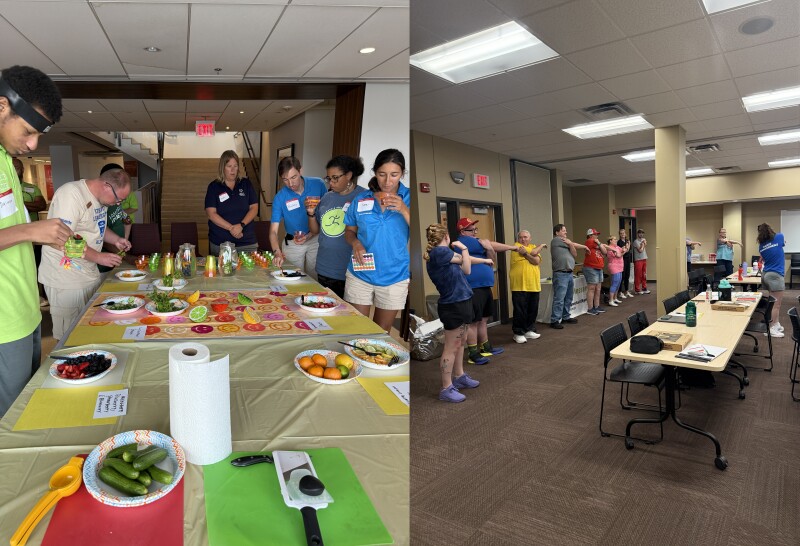This summer, Special Olympics International and Special Olympics North America (SONA), and in partnership with Special Olympics Kansas, teamed up to host two Special Olympics Health Messenger training sessions in Washington, D.C. and Kansas City, KS. These sessions offered Special Olympics athletes from Programs across the United States the opportunity to become Health Messengers. Across both sessions, 26 athletes from 10 different states participated and were certified as Health Messengers.
Health Messengers are athletes trained to serve as health and wellness leaders, educators, advocates, and role models within their communities. Since its inception in 2016, Special Olympics’ Health Messenger program has trained over 5,000 athletes to take on these roles. As Health Messengers, athletes educate their communities on how to lead healthier lives and inspire health and care professionals, policymakers, and others on how to support the health needs of people with intellectual and developmental disabilities (IDD).
Individuals with IDD face many ongoing barriers to accessing quality healthcare, resulting in poorer health outcomes than the general public. As a result, individuals with IDD die 16 to 20 years sooner than people without IDD. Special Olympics’ Health Messenger program reflects the global disability rights movement’s slogan “Nothing About Us Without Us,” by ensuring that as Health Messengers, athletes play a leading role in voicing the importance of equitable health policies and practices.
Over the course of a weekend, athletes were trained on a variety of health-related topics, including the role and responsibilities of Health Messengers, the health disparities faced by people with IDD, the importance of physical activity, nutrition, emotional health, and the best practices for health communications. Together, these sessions provided athletes with a comprehensive understanding of how to maintain their own health and support the well-being of others through engaging confidently in conversations about the health needs of individuals with IDD. When asked about a takeaway from the D.C. training session, Health Messenger Alex Beauchner from Special Olympics New Hampshire shared, “We need help accessing healthcare—we’re all good leaders, but we all need to support each other.”

Health Messengers then shared their activation plans and further goals with the group. Health Messenger Daniel Hewitt from Special Olympics Kentucky shared, “My goal is to help my fellow athletes manage stress so minds will stay strong. I will educate fellow athletes regarding stress relief techniques. I will make flyers showing stress relief techniques, create social media posts, and show positive stress relief choices.”
Other plans included developing an accessible educational video series on healthy habits to share at school and supporting fellow Special Olympics athletes with navigating stress and mental health. Each Health Messengers left the training feeling inspired to take action and lead their communities toward healthier futures.
Learn more about becoming a Health Messenger by checking out our Health Messenger page or by reaching out to your local Program.
